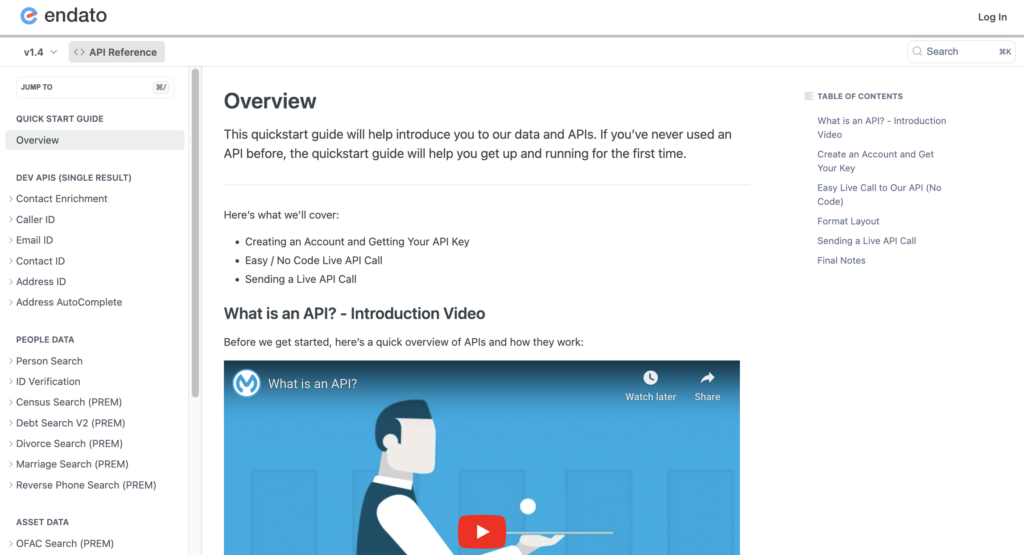There are many business records that can help a business or individual understand more about another business. For example, you may want to view a business’s credit score, learn about the owners of a business, or search for a business’s tax filings. All of these searches can help an individual or business learn about another business, its payment history, and its creditworthiness. But how else can you learn about a business? Another way to understand a business and its credit history is with Uniform Commercial Code (UCC) filings. Though a UCC filing won’t directly affect a business’s credit score, it can show up on a credit report and reveal information about a business’s finances — which is why it can be important to search UCC filings in a public and private records database when trying to learn about a business.
A UCC filing is a filing that a lender places on a debtor’s assets, usually business assets, stating that the lender has a right to repossession of those assets until the loan is completely paid off. For example, when a business doesn’t have funding for capital on its own, it may take out a loan to fund the capital from another business. To ensure the loan is paid back and protect the lender’s finances if it isn’t, the lender will file a UCC filing, stating that the lender has the right to repossess whatever capital they financed if the debtor defaults on their debt. If the debtor doesn’t pay back a debt, the debtor may take possession of those assets again.

Though a UCC filing does not directly affect the credit score of a business, it does reveal information about that business’s finances and payment history that may be useful to another business, a financial private investigator, or a legal professional. For example, if you’re in a financial services business and you’re considering giving a loan to a business, searching UCC filings can be an important piece of performing due diligence. If a business has prior UCC filings, you may be less likely to provide credit or loan to that business because if the business does not pay your loan back, other businesses that filed a UCC filing before having the right to repossess assets before you do. UCC filing searches can also be an important part of vendor risk assessment tools. If a business has multiple UCC filings, that may make a business more high risk because it shows they have a lot of debt. While UCC filings don’t always mean a business has risky payment behavior, it is still important to access them because they reveal business relationships, like creditor-debtor relationships, which are important in building a profile on and investigating the history of another business.

A UCC filing is a public record, meaning a business’s UCC filings can be accessed in a public records database. Usually, businesses, like corporations or financial services, will want to access other businesses’ UCC filings using corporate software services to do management due diligence before purchasing, investing in, or lending to that business. Legal professionals may also access UCC filings to perform due diligence or authenticate a business. Collections agencies or repo services can also search UCC filings using collections software solutions to assess if they have a right to personal asset recovery on that business.
There are many reasons for a company would use UCC filings, primarily to secure loans. When a company loans money to another business or individual, it wants to ensure that it has a legal claim on some of that debtor’s property in case the loan is not repaid. By filing a UCC financing statement with the appropriate state agency, the lender can establish a security interest in the debtor’s personal property, such as inventory, equipment, or accounts receivable. This provides the lender with a legal claim on the property in case the debtor defaults on the loan.
UCC filings can also be used by companies that sell goods on credit. When a seller extends credit to a buyer, they are taking on the risk that the buyer may not pay for the goods. By filing a UCC financing statement, the seller can establish a security interest in the goods sold, which means that if the buyer does not pay, the seller can repossess the goods and resell them to recoup some of its losses.
Another use of UCC filings is in mergers and acquisitions. When one company acquires another, it may assume some of the acquired company’s liabilities. By conducting a UCC search, the acquiring company can determine if there are any outstanding UCC filings against the acquired company’s assets. This information can be used to negotiate the terms of the acquisition and to protect the acquiring company’s interests.
To get started accessing UCC filings, use a public and private database like Endato. Endato allows you to easily search UCC filings by SSN, EIN, business name, creditor name, address and more. With a UCC filing search in Endato, you can gather UCC filing date and history plus business details, SIC classification, risk scores, creditor and debtor information and more — all of which can help you understand more about a business and perform due diligence.
If you’d like to learn even more about a business using Endato’s public and private records database, you can search other business records and view business credit reports, perform a combined business search, or search DBA/FBN records, FEIN-Tax ID records, corporate records, and workplace records. And with fast people find through API and batch processing solutions, you can customize your data collection methods to fit your unique needs.
UCC filings are a valuable tool for companies in a variety of situations, including when offering financing, selling goods on credit, and engaging in mergers and acquisitions. By establishing a security interest in a debtor’s personal property, companies can protect themselves against financial losses and ensure that they have legal recourse in case of default.


Getting familiar with how to use Endato’s search and API products is very helpful in deciding what products you’ll want to use. We’ve created this quick start guide to walk new users through how to use Endato. Happy searching!